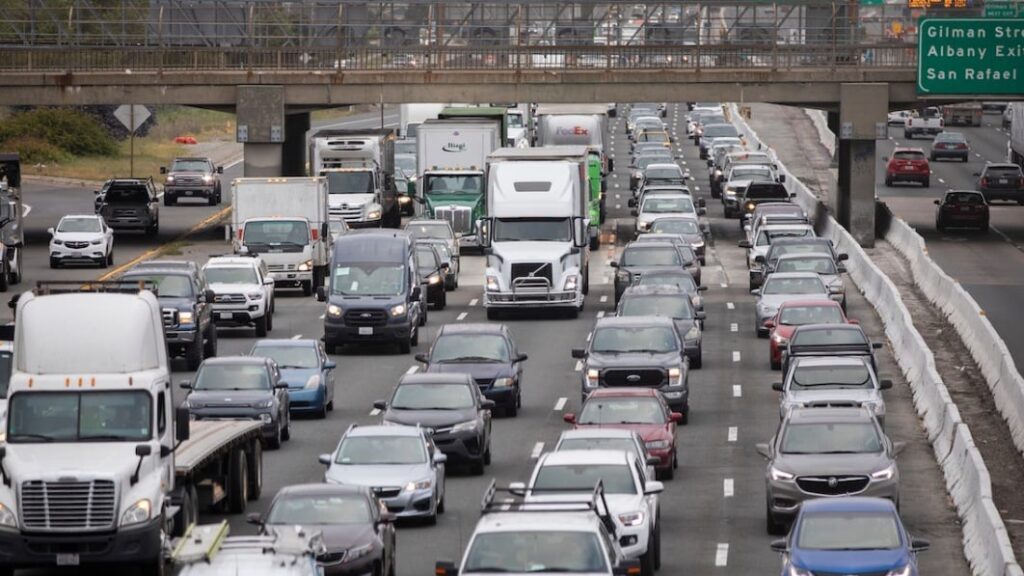Your commute could be harming your sleep, fueling depression, wasting your time and money

Morning commuter traffic backs up on Interstate 80 westbound in Berkeley, Calif. Tuesday, April 6, 2021.
Jessica Christian/Getty Images
A new study found that driving to work is making people less happy.
The longer workers spent in their cars and the more money they spent on commuting, the less happy they were.
This research aligns with previous studies on the negative health impacts of commuting.
Motor vehicles pollute, clog streets, and are responsible for more than 40,000 deaths in the U.S. each year. But longer and more expensive car commutes are also hurting our mental health.
A new study conducted by researchers in Spain found that the more time and money people spent driving to work, the worse mental health outcomes they experienced.
The more time workers spent driving, the less sleep they got, the more depressed and under pressure they felt, and the worse their mental health was in general. Similarly, the more money they spent on commuting, the more sleep loss and depression they experienced.
The vast majority of those surveyed — 77% — commuted by private vehicle (car or motorbike), while about 7% used public transport, and 16% engaged in active commuting, including walking or biking.
Driving was the most time-consuming and expensive form of commute the study — which included a representative sample of 294 people — looked at. Those who took public transit, walked, or biked to work spent significantly less time and money commuting.
Those who drove their private vehicle spent an average of 54.8 minutes per day commuting — and spent an average of €99.7 per month. Those used traveled by mass transit spent an average of 44.2 minutes per day commuting and spent €59 per month, while those who actively commuted spent an average of 39.3 minutes per day and €59.5 per month on commuting expenses. Those who drove to work had a higher average educational level than members of the other groups and were also more likely to be married or in a relationship, and more likely to be overweight or obese.
In the U.S., more than three-quarters of commuters — 76% — use their car to get to work. The average commute time in the U.S. was 26.8 minutes in 2021. Commute times and expenses range across the country depending on how close workers live to their workplace and how connected the public transit system is, but Americans spend less time on average driving to work than commuting by public transit.
The study in Spain aligns with previous research on the impact of commuting on health and mental well-being. A major study conducted by researchers at the University of East Anglia in 2014 found that car commuters in the UK were 13% more likely to feel they were under constant strain or unable to concentrate than those who took public transport or got to work in other ways. Multiple studies around the world have also found that those who drive to work have a higher risk of high blood pressure, diabetes, and obesity than those who take the train or bus.
Political scientist Robert Putnam, who wrote the book “Bowling Alone” about the decline of U.S. civic life, found that longer commute times were directly correlated with fewer social connections and less happiness.



